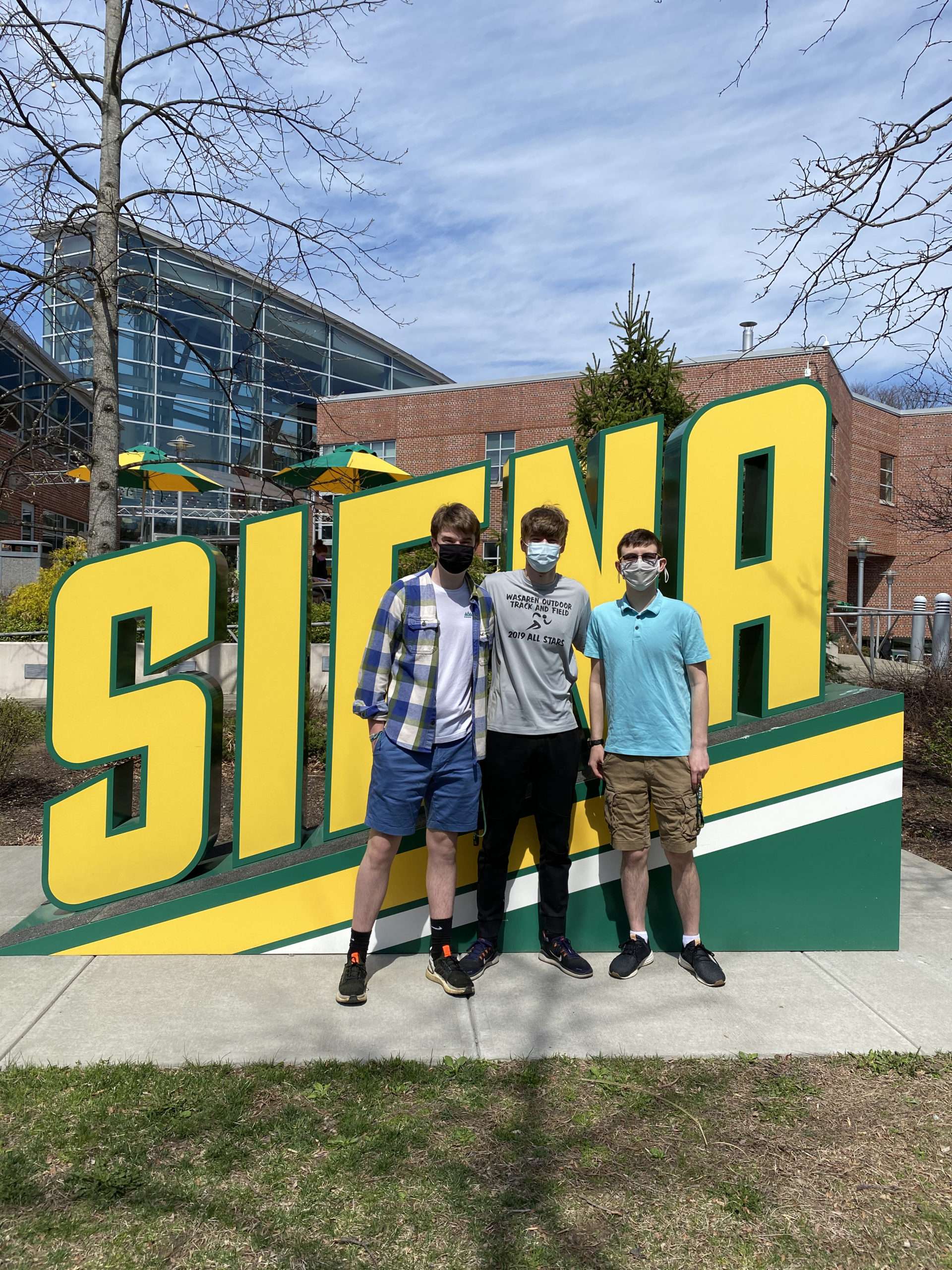Brian Bauer, Daniel Allspach, and Noah Franz
April 16, 2021
We are a working group of three undergraduate students at Siena College. We started with DESI under Dr. John Moustakas in February 2020. We were intrigued by the opportunity to work with such a large collaboration with so many scientific possibilities. Since then, Noah Franz and Brian Bauer have focused on identifying strong gravitational lenses in DESI spectra by using Python to separate the source and lens galaxy spectra then analyzing the success. Daniel Allspach has been working to fit stellar templates to model DESI spectra continua and determine galactic demographics and outflow classifications. Contributing to these projects has provided us with invaluable insight and experience into working with large collaborations.

After working with DESI, attending Zoom telecons, and learning how a collaboration functions, what we enjoyed most of all is the welcoming nature of everyone involved. Without this feeling of acceptance we would have found it difficult to integrate into a project effectively. Although receiving emails in the wee hours of the morning can be a little odd at first, we were able to quickly adapt and become accustomed to the practices and methods employed by DESI. Being included in any aspect of the project, especially as an undergraduate, is an honor, yet we were continually challenged to dive deeper and join as much as we can. A welcoming environment provides the perfect jumping off point for new members and that is truly the best part about the DESI collaboration.
With over 700 contributing members, DESI is a large collaboration, and, as undergraduate researchers we found entering the community of mostly graduate students and PhDs intimidating and overwhelming. While some of the DESI updates and zoom meetings can be daunting, after spending time reading the literature and learning the acronyms we became accustomed to the jargon. Once we surpassed this learning curve, we were able to start our own research projects. In many ways this was our introduction into large scale collaborative astronomy and cosmology: many things are new to us. Having the DESI environment to help us orient and navigate this research environment has been incredibly helpful. DESI has given us a fantastic first experience not just with research but also working with a large collaboration. As a result, we all were inspired to continue research going into the future.
